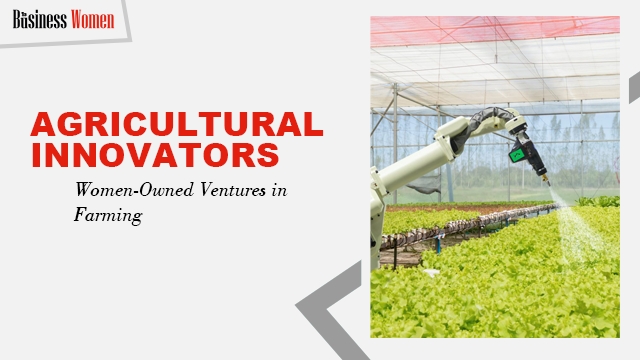Agricultural Innovators: Women-Owned Ventures in Farming
A remarkable change has been occurring in the world of agriculture, as women-owned firms in farming emerge as a powerful force of change. With their invention, inventiveness, resiliency, and dedication to sustainability, these women are revolutionising the business by shattering conventional gender norms.
They are significantly altering not just their own lives but also the lives of other communities and the world food chain by embracing agriculture.
This blog will explore the remarkable tales of agricultural innovators who are women who defy gender norms, advance development, and reimagine what it means to be a farmer. Through their influencing examples, we will witness the conquest, difficulties, and transformative power of women-owned firms in farming.
The following are some instances of successful farming businesses run by women that serve as an inspiration to others:
Leah Penniman – Soul Fire Farm
Farmer, author, and educator Leah Penniman co-founded upstate New York’s Soul Fire Farm. A community-based farm called Soul Fire Farm aims to educate and empower underserved groups, especially people of colour, in sustainable farming methods.
Food justice, racial equity, and the relationship between land and culture are all topics covered by Leah’s work. She has allowed marginalised people to acquire nutritious, fresh produce and reclaim their agricultural legacy through Soul Fire Farm.
Marianne and Richard Chowning – Rivendale Farms
Rivendale Farms in Pennsylvania are Marianne and Richard Chowning. They have adopted cutting-edge techniques, including vertical farming, hydroponics, and aquaponics, to raise crops and livestock sustainably. Richard’s farming experience and Marianne’s technological expertise have enabled them to establish a farming operation that is both profitable and environmentally responsible.
Bimla Devi- Organic Farming
Indian farmer Bimla Devi has emerged as a role model for women in agriculture. Bimla Devi, facing numerous difficulties in a field largely dominated by men, decided to try organic farming while concentrating on the growth of conventional crops.
She used sustainable practices to increase soil fertility and decrease chemical inputs, such as employing organic manure and vermicomposting.
The accomplishments of Bimla Devi have encouraged numerous more women in her community to undertake organic farming, helping to preserve conventional farming practices and promote better food options.
Chantel Donnan – Earth Candy Farm
Earth Candy Farm, an organic vegetable farm in British Columbia, Canada, is owned and run by Chantel Donnan. Chantel quit her career in corporate America to devote herself to sustainable and regenerative agriculture.
She uses cutting-edge methods at Earth Candy Farm to improve soil health and biodiversity, including no-till farming, cover crops, and crop rotation.
Chantel also actively engages in community-supported agriculture (CSA) programmes and neighbourhood farmer’s markets, putting customers in touch with sustainably produced food.
Esther Mwangi – Green Farming
Kenyan farmer Esther Mwangi champions eco-friendly and sustainable farming methods. She established Green Farming, a business that educates female farmers in organic farming, agroforestry, and water-saving practices.
To enhance food security and economic production, Esther focuses on educating and equipping women to improve food security and economic output. Through her programmes, she has helped rural communities embrace environmentally friendly farming practices while lowering their reliance on chemical inputs.
Conclusion
The increase of women-owned firms in farming marks a new beginning in the agricultural field- one defined by heterogeneity, innovation, and sustainability. The examples mentioned above in this blog exhibit these women’s immense impact within their communities and beyond.
Through their strength and determination, they surpass the limit, challenging stereotypes and reshaping the future of agriculture.
These agricultural innovators are paving the way for a more just and resilient food system by emphasising sustainability, embracing technological breakthroughs, and promoting social justice. These stories tell us about women’s untapped potential and their invaluable contribution to this sector.
.

